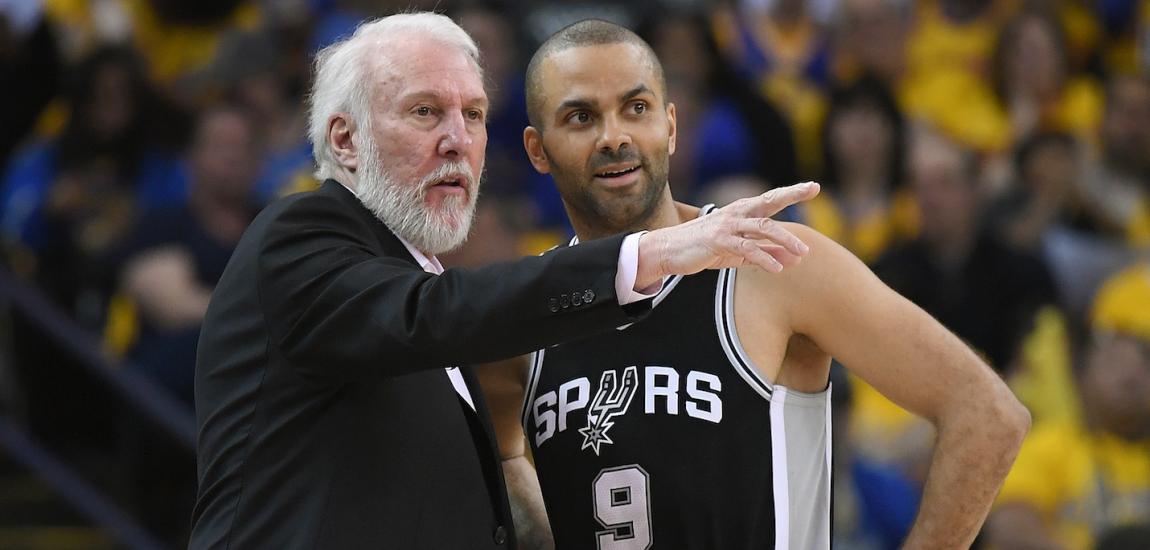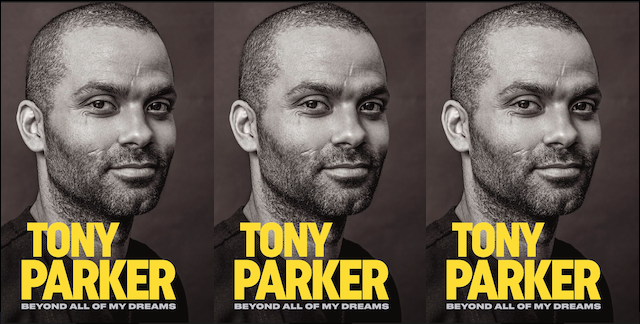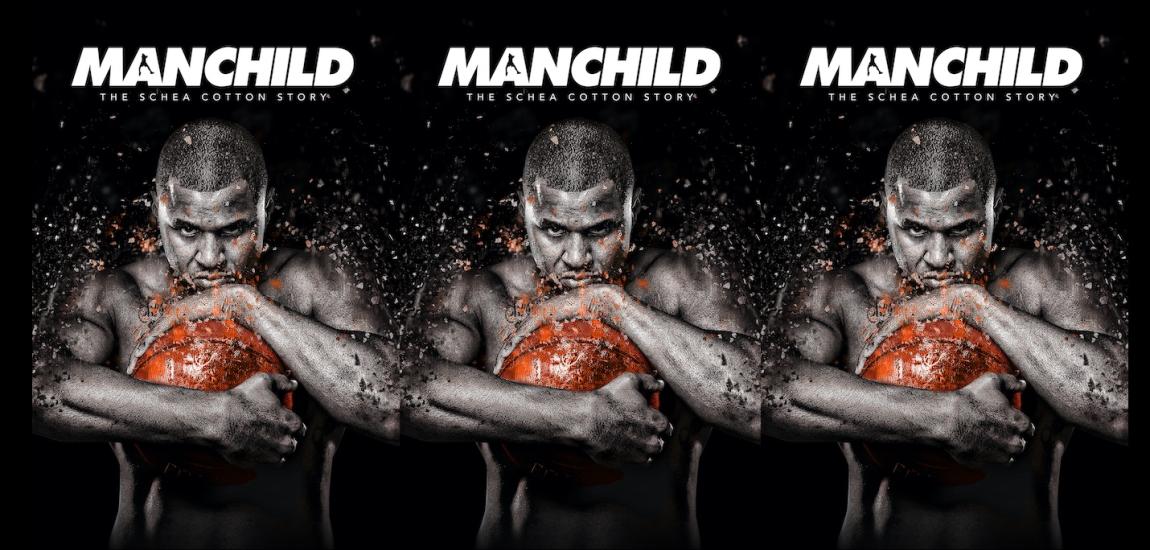Tony Parker's new memoir, Beyond All of My Dreams, takes fans on a whirlwind tour, including his early life in France, his four NBA championships with the Spurs, and countless memorable interactions with luminaries like Gregg Popovich and Tim Duncan. Here's an excerpt:
From my first NBA practices, Gregg Popovich was really hard on me. "Get your head out of your ass!" He cursed a lot and said other crazy things. It wasn't easy to handle. He was nothing like my previous coaches. But at the same time, I had grown up in a family with a father who was respected and very hard on us. It was normal for me. I never had a problem with authority. I never talked back. On the contrary, I wanted to react and show him what I could do on the court. Some players are made for that. Others are not. A lot of players told me they could never play for a coach who insulted them. It didn't bother me. I always thought he was doing it for the good of the team. If sometimes I thought he was wrong, the next day we would talk about it. He was always open to discussion.
At any rate, during my rookie season, I sometimes had tears in my eyes in the shower after practice. I told myself, "I'll never be able to satisfy this coach. He'll never be happy." All he did was push me. Push me to test my limits. But there were never limits ... I took it throughout my entire career. I never broke down in front of him or the team. I sometimes went home defeated and asking myself if I really wanted to continue playing for that coach.
I never had a full-on shouting match with him and never answered in the same tone of voice as him. Never. In my mind, the coach equaled authority, and that was just how it was. What I did was take it in front of the team and then, the next day, I would go talk to him in his office. So that he could maintain his authority, for the good of the team, I never reacted like a hothead in front of everyone. The next day, in his office, I would never tell him, "You were too hard on me." I told him that I didn't agree with him on certain things. Sometimes, I would leave his office and we still didn't agree, but we continued to make progress together for the good of the team. That was our relationship.
More NBA: Sneak Peek At Stephen Curry's New Shoes From Under Armour
There's no denying it -- Pop helped me a lot. It's still hard to say what my career would have been like with another coach. I think I still would have had a great career. He surely helped me to outdo myself at certain times. I think that we helped each other, and that we pushed each other. I had such a drive and desire to succeed that nothing could stop me. I would have kept going. I could see that he was much harder on me than he was on the others. Maybe it's because I was the point guard, and he knew I could take it. He had tried with other players, like Beno Udrih or Hedo Turkoglu, but it hadn't worked at all. It actually had the opposite effect. They couldn't play anymore, and the club had to trade them. He was also hard on Tim Duncan and Manu Ginobili, but not to that extent.
It sometimes bordered on abuse with me. Once we were watching film, and he was screaming at me, insisting that I reply. Actually, he was waiting for a confrontation. I didn't answer. I just looked at him. Then he kicked me out of the meeting: "Out of the room!" All because I didn't say a word. Tim stood up and came to my defense: "That's enough, Pop. It's gone too far." Pop then made everyone leave the gym, except for Tim, Manu, and me, so that we could have a talk. He explained to us, "We can't pass up this chance to win. I can't help myself, Tony. You have to be ready. That's why I'm hard on you."
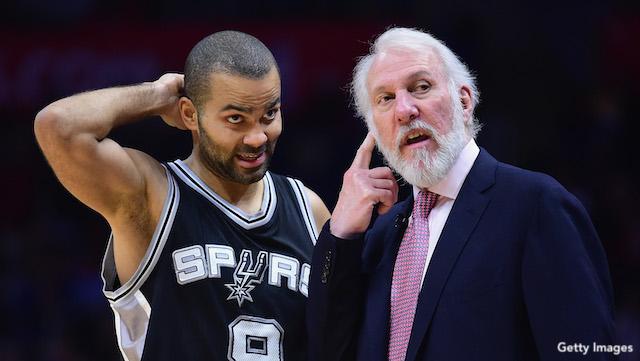
That's why Pop was so good. When it came to basketball, he was in his element. But outside of it, like when we flew, he'd call me over so that we could choose the wine together. When we went to Paris with the Spurs, we made all the restaurant reservations together. He asked for my opinion on the practice schedule, if I wanted us to practice at PSG and INSEP. Outside of basketball, he was socially a very curious and cultivated person who was interested in a lot of things. He was incredibly nice. Then again, when on the court, he was intense. Not everyone could play for him. He wanted perfection but knew it was impossible to be perfect.
Mentally, I had ups and downs at times. It wasn't easy. Some days I said to myself, "What else do you want me to do? I just scored 25 points, 12 assists, and it's not enough." When Pop would congratulate me after a game, it was "Good job." Nothing more. Very quickly I adopted that attitude too. When I would score 30, 35, or 37 points, I said, "That's a good win, but now I need to focus on the next game!" It was normal. It was my job.
More NBA: The Kobe Collection
The times I was truly happy at the end of a game were rare. But they happened after the wins that gave us championships, after the MVP title in the NBA Finals, and all of the times when I was named an All-Star. In those instances, it was true recognition. I was among the best players in the world. Okay, when I scored 55 points in Minnesota on November 5, 2008, I admit I was more than slightly happy. It's not every day you score over 50 points in a game. I couldn't help smiling a little bit. It only happened once in my career. I even teased Tim a little bit after that game. His own top score was 53 points, and I told him that I simply wanted to beat his score.
Now that Tim, Manu, and I are no longer in San Antonio, I don't think it's the same for Pop. The relationships we created together were unique. He'll always try to come up with something else, because Pop needs to feel that kind of affectionate relationship with his players. But he'll never again experience what he built with Tim, Manu, and me.
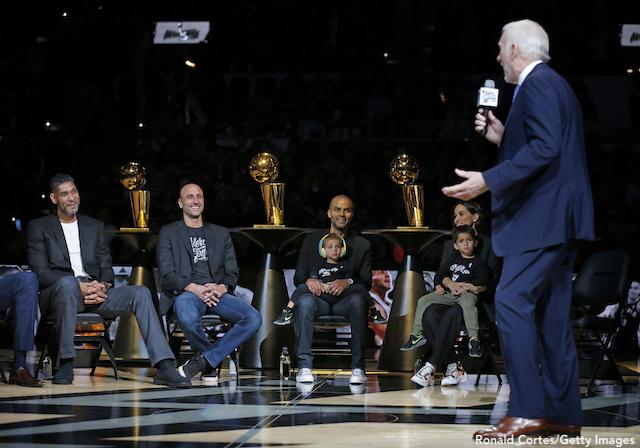
When I was in Charlotte, he would regularly call and tell me he missed me. That was heartwarming. He would call from a restaurant and want to know why you weren't sitting in front of him to chat. It was strange.
One reason we play sports is to experience human connection. We spend more time with our teammates and coach than with our family. We really had a special relationship. The relationship between the coach and the point guard is always kind of special. I was the one who took the brunt for everyone. One day I was in the locker room and I asked him: "Pop, why do you always put me in this place (in the middle of the locker room, facing the entrance wall)? Can't I be on the side for a season?"
More NBA: James Harden's Journey From Compton To NBA MVP
"No, no! I want you in front of me. That way, when I yell, I can see you!"
Pop was the one who designated all of the locker room positions in San Antonio, and he wanted me to be in front of him. I have to admit that I've taken a lot from his managerial style that is useful for me now as the manager of ASVEL. But I will put some aside. I don't think Pop could coach like that today. With today's sensitivity, and social networks that escalate everything you say, he couldn't. He was incredibly lucky to have first found a guy like Tim, who never batted an eye, never talked back, never said anything. Same for Manu and me. In Charlotte, when our coach James Borrego (JB) would yell a tiny little bit, and the players would complain and say that the way he yelled had "gone too far," I would say, "You have no idea what too far is. He didn't even insult you or swear at you!" JB had been in San Antonio. He was Pop's assistant coach and responsible for film work. He had experienced it. Even he had gotten chewed out. As soon as there was even a one-second delay in a sequence, he got a mouthful. Pop would look at him and say, "Well, I'm going to have to find a new video coach. You're too slow!"
Although tough, he always had the ability to show his love too. Honestly, he was great.
-- Excerpted by permission from Tony Parker: Beyond All of My Dreams by Tony Parker. Copyright (c) 2020. Published by Triumph Books. All rights reserved. No part of this excerpt may be reproduced or reprinted without permission in writing from the publisher. Available for purchase from the publisher, Amazon, Barnes & Noble and Bookshop.org. Follow Tony Parker on Twitter @tonyparker.

